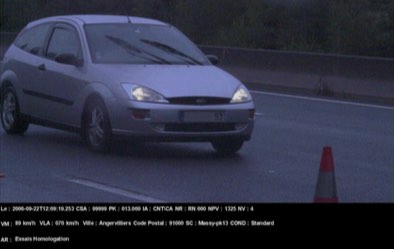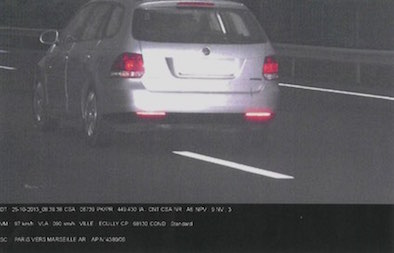It’s no secret that I think European laws are a joke. Imagine the technologically illiterate politicians that we have in the US, but now imagine that they were actually effective at passing all the stupid laws they want.
There are many examples:
- Their use of photo enforcement is unfettered by the rules of trigonometry.
- If a website has cookies, it must display an annoying pop-up warning.
- They required Microsoft to implement the browser ballot, a feature that was broken for 1.5 years before anybody noticed.
- They required Microsoft to release an alternate version of Windows XP without Windows Media Player, a ruling that was so out of touch with the interests of the people that only 1500 copies were sold.
- If you don’t like what somebody is saying about you on the internet, you have a “right to be forgotten” by Google.
Really any time the European Union or the individual European states pass a new law or make a ruling, it’s sure to be comical.
But today I want to write about “freedom of panorama.” This is actually an exception to copyright law, in that the person who designed a building has a copyright on its appearance. In the US, we have a scheme that considers most things that are outdoors and visible to the naked eye to be for public consumption and sharing. With minor exceptions (artwork, for example), one can take photos in public and use them as desired. There is a line, in that we cannot use a telescope to look in windows, for example. In my understanding, this scheme would not be considered true freedom of panorama due to the artwork exceptions. There are pros and cons, but a big positive aspect is that this is generally compatible with the realities of rapidly-advancing technology for taking and sharing photographs.
Now let’s look at Europe. Here, the right to share photographs varies by country. Germany is considered to have freedom of panorama, so outdoor public spaces can generally be photographed and shared as long as the photographer is standing on the ground. There are restrictions on sharing photographs of people. Also they have been drawing a strange distinction for large-scale mapping, and this is why Google Street view has a handful of blurred out houses in Germany. I don’t know the legal theory behind this, and it seems to be related to data privacy, but residents in Germany can opt-out of being pictured on Street View. It’s my understanding that one resident can even opt his entire apartment building out. Also, importantly, freedom of panorama does not apply inside buildings, such as museums.
In France, there is no freedom of panorama. People who own copyrights on buildings or outdoor art exhibits enjoy copyright protection even from small time photographers. A famous example of this involves the Eiffel Tower. In my understanding, the structure’s copyright has already expired, but the lights on it at night are considered an art installation and thus receive copyright protection of their own. Therefore, sharing photos of the Eiffel Tower lit up at night is copyright infringement if prior permission is not received from the organization that runs the tower.
My problem with all of this is practicality. These copyrights are being infringed all the time and it’s only going to get worse. The fact that freedom of panorama isn’t the rule everywhere shows a huge disconnect with reality. I complain all the time about the prevalence of cameras in public, but I’m not crazy. Tourists are not going to navigate a minefield of legal nuance when taking photos. So you’re either going to have broad copyright protection of outdoor sights and no compliance or very limited copyright protection of outdoor sights and high compliance.
Because European lawmakers are clueless, there have been recent attempts to eliminate freedom of panorama exemptions all across the EU. I understand that the EU is hot to increase consistency across borders, which may often be beneficial, but this is the wrong direction to go. For better or worse, the government is supposed to work for the people. The position of the people is clear.




 Fromage
Fromage